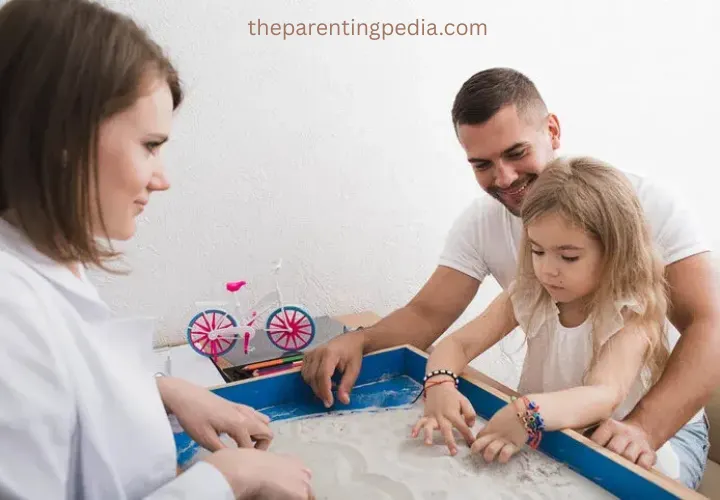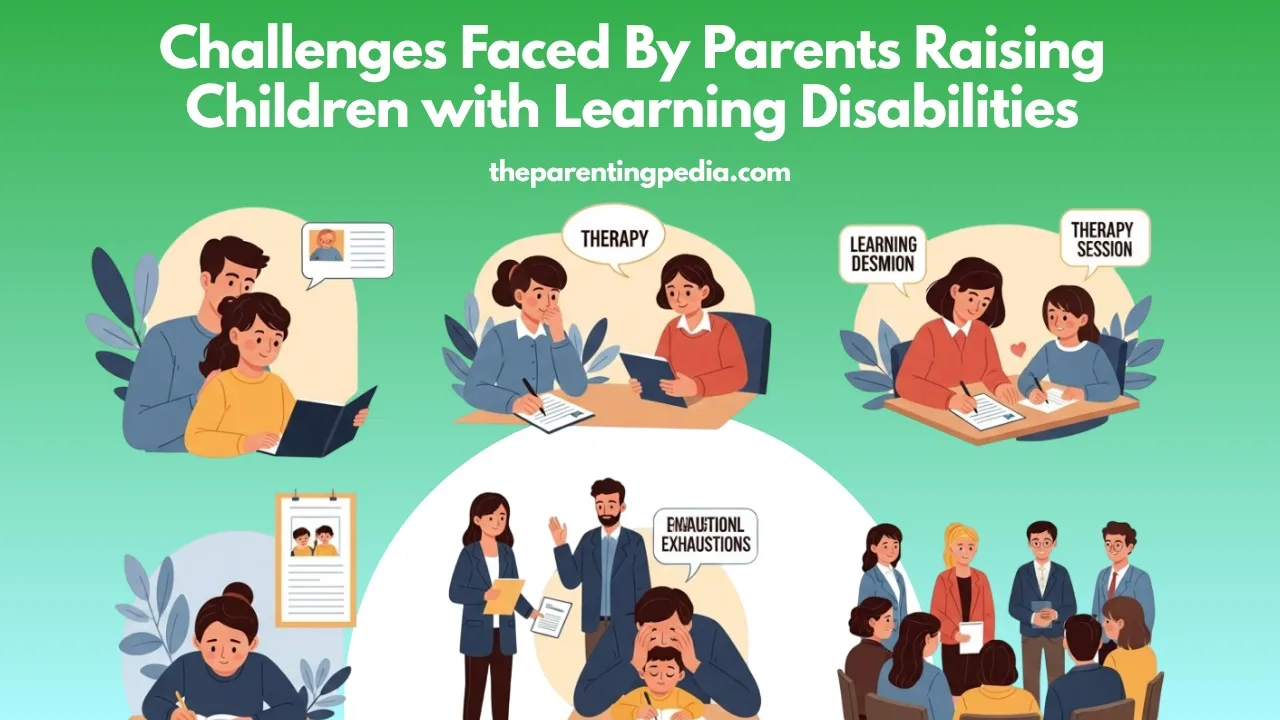Adoption is a beautiful way to build a family. It gives children loving homes and gives parents the chance to raise a child they may not have been able to have biologically. But adoptive parenting comes with unique challenges. Many people think adoption is just about bringing a child home and living happily ever after. But the truth is, adoptive parents often face emotional, social and practical difficulties that biological parents may never experience. Understanding these hurdles is important for adoptive parents, extended families, teachers and anyone who wants to support adoptive families. In this article, we will discuss some of the most common challenges adoptive parents face and explore ways to handle them.
Challenges Faced In Adoptive Parenting
1. Attachment and Bonding Issues
One of the biggest challenges is building a strong emotional bond with the adopted child. Some children especially those adopted at an older age or from difficult situations may struggle to trust adults. They may push parents away or act indifferent. This does not mean such children don’t want love. It often means they have been hurt before and don’t know how to respond to kindness. For parents, this can be heartbreaking especially when they feel they are giving their best but not getting love in return.
Steps That Can Help:
- Be patient and give child time to adjust.
- Create routines that make them feel safe.
- Don’t push them to show affection. Give them space to come to you when they feel comfortable.
- Seek help from therapists who specialize in adoption and attachment.

2. Identity and Sense of Belonging
As adopted children grow up, many start asking questions like “Who are my birth parents?” or “Why was I adopted?” These questions are normal but can cause confusion or sadness. Some children feel torn between two identities, their birth family and their adoptive family. This can be even more challenging in inter racial or inter regional adoptions where a child’s race or ethnicity is different from the parents. These children may struggle with feeling different or not fitting in.
Steps That Can Help:
- Talk openly about adoption in age appropriate ways to them.
- Acknowledge feelings of adopted children without judgment.
- Help them learn about their cultural or ethnic background if it is different.
- Remind them they are loved and accepted as part of the family.
3. Behavioral and Emotional Challenges
Some adopted children have experienced trauma, neglect or abuse before coming to their adoptive families. These early experiences can lead to behavioral issues like aggression, withdrawal, anxiety or difficulty with rules. Adoptive parents may feel confused or frustrated, not understanding why their child is acting out. It is important to remember that these behaviors are often rooted in fear or past hurt.
Steps That Can Help:
- Avoid punishing harshly. Instead, try to understand what triggers such behaviors in children.
- Use calm, consistent discipline and positive reinforcement.
- Build trust by showing love even during tough moments.
- Seek professional counseling when needed.
4. Dealing with Birth Family Connections
Some adopted children maintain contact with their birth family, especially in open adoptions. While this can be positive, it can also lead to confusion, jealousy or mixed emotions. Birth parents may not always respect boundaries or children may feel torn between two families. Whereas in closed adoptions, lack of information about birth parents can leave children with unanswered questions and a sense of loss.
Steps That Can Help:
- Set clear, healthy boundaries for contact.
- Be honest about what you know about their birth family.
- Help children express feelings about their birth family in a safe way.
- Support them if they choose to search for birth relatives as adults.
5. Health and Developmental Issues
Many adopted children especially those from foster care or orphanages may have undiagnosed health issues, developmental delays or learning disabilities. Adoptive parents may not get complete medical histories and may face unexpected challenges as their child grows. This can include speech delays, difficulty in school, sensory issues or chronic health conditions.
Steps That Can Help:
- Get thorough medical and developmental assessments soon after adoption.
- Work closely with doctors, therapists, and educators to meet the needs of adopted children.
- Discuss about your child’s needs at school and in the community.
- Connect with support groups for advice and shared experiences.
Also Read: Helping Kids Understand Money: A Guide to Financial Literacy
6. Social and Cultural Stigma
Adoptive families sometimes face insensitive questions or comments from others like “Is he your real child?” or “Why didn’t you have your own?” These remarks can be hurtful to both parents and children. Parents adopting inter-religion or internationally may also face prejudice or ignorance about different cultures. Adopted children may also be teased or questioned by peers which can affect their self-esteem.
Steps That Can Help:
- Educate friends and family about adoption and your child’s needs.
- Teach your child how to respond confidently to rude or curious questions.
- Stand up against racism or discrimination.
- Honor your child’s roots by celebrating their heritage with them.
7. Legal and Administrative Hurdles
The adoption process itself can be complicated involving mountains of paperwork, legal proceedings, home studies and background checks. Even after adoption, parents may face challenges related to citizenship, passports or access to original birth records. International adoptions can be even more complex due to changing laws, country specific rules and long waiting periods.
Steps That Can Help:
- Work with experienced adoption agencies or lawyers.
- Stay organized with important documents.
- Keep copies of adoption papers, court orders and medical records.
- Join adoptive parent groups for guidance on paperwork and legal rights.
8. Financial Strain
Adoption can be expensive especially private or international adoptions which may cost thousands of dollars. Beyond adoption fees, ongoing expenses for therapy, medical care or specialized education can stretch family budgets. This financial pressure can lead to stress between parents or affect other children in the family.
Steps That Can Help:
- Research about adoption grants, tax credits or employer assistance programs.
- Plan a budget for adoption related expenses and unexpected costs.
- Connect with charities or non profits that support adoptive families.

Conclusion
Adoptive parenting is a rewarding but challenging experience. While it comes with many unique hurdles, it also brings opportunities for deep love, personal growth and making a difference in a child’s life. Challenges like bonding, identity issues, behavioral struggles and social stigma are real, but they can be overcome with patience, understanding and support. Adoptive parents should remember that they don’t have to go through this alone. Reaching out for help, educating themselves and building a strong support system can make the journey smoother for them. Every child deserves a loving family and every adoptive parent deserves encouragement and resources to help their adopted child grow and get successful in life.
FAQ
What are the stress of adoptive parents?
Adoptive parents often face stress from bonding difficulties, behavioral issues and identity struggles in their adopted child. They may worry about rejection, face social stigma or feel pressure to meet unrealistic expectations. Financial strain, legal challenges and balancing family dynamics can also add emotional and mental stress to adoptive parenting.
How do adoptive parents feel?
Adoptive parents often feel a mix of joy, love and fulfillment but also experience worry, frustration and self-doubt. They might worry about being rejected or have difficulty forming a bond with adopted child. Many feel isolated or misunderstood by others yet remain deeply committed to helping their child grow and building a strong, loving family together.
